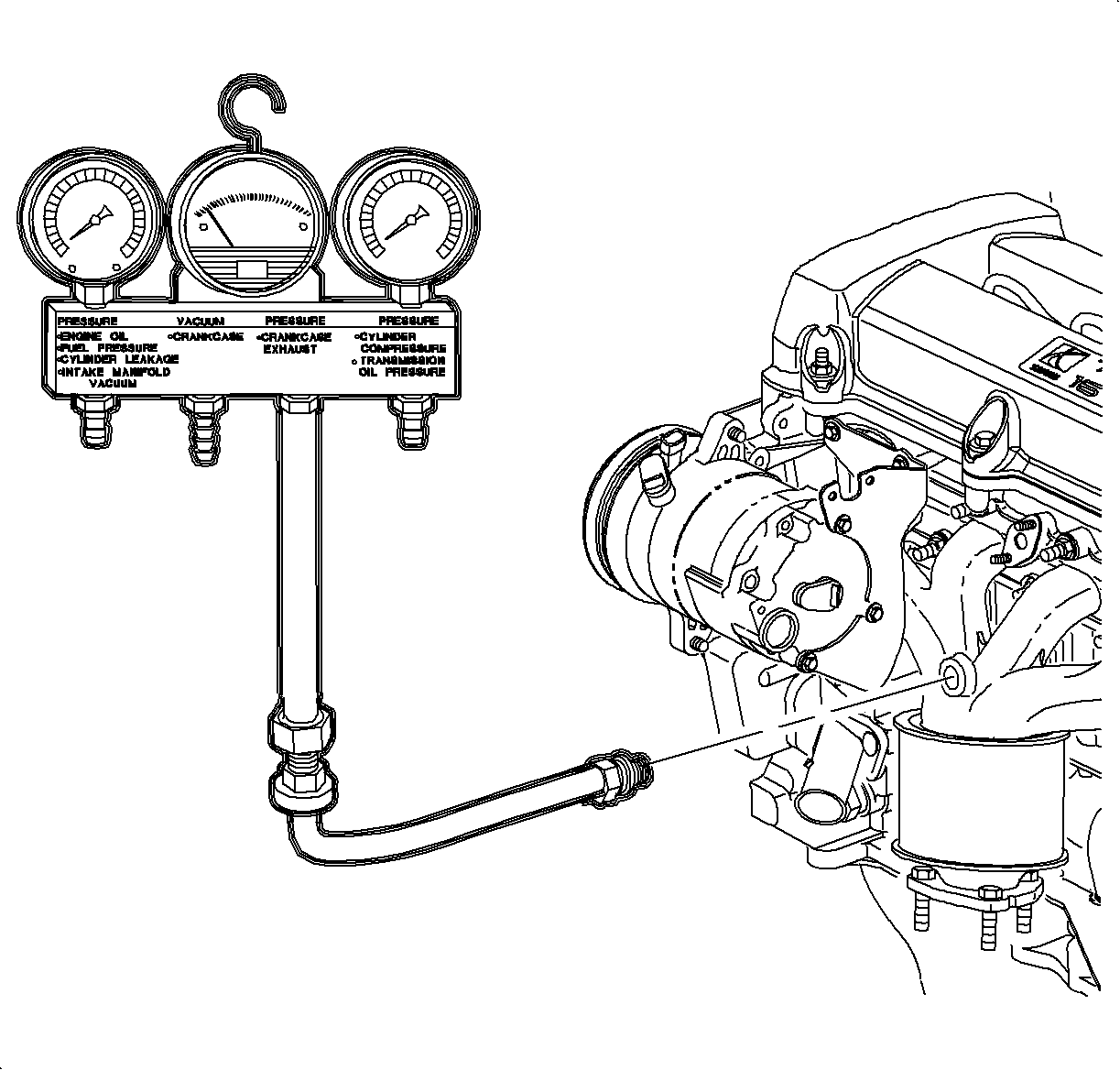
A slight pressure in the exhaust system is normal, but excessive exhaust back pressure seriously affects engine operation. Causes of high exhaust back pressure are dents or obstructions in the exhaust pipe, a plugged 3-way catalytic converter or muffler.
Test Method - Vehicle Parked
- Remove the oxygen sensor.
- Insert the SA9127E Gage Bar Set into the exhaust manifold. The thread designation is M18 x 1.50.
- Connect the SA9127E , 0-15 kPa (0-60 in H2O) gage to the back pressure adaptor.
- With the engine at normal operating temperature, observe the exhaust back pressure at 4,000 RPM.
- The exhaust back pressure must be less than 5 kPa (20.13 in H2O).
Notice: Do not use the 0-60 in. H2O gage when performing this test, as it will be permanently damaged due to the excessive back pressure during accelerations. Use the 0-690 kPa (0-100 psi) gage and appropriate hoses in the service gage bar kit SA9127E.
Important: If the exhaust pressure exceeds the specification, inspect for a dented or collapsed exhaust pipe. It may be necessary to disconnect the exhaust pipe before or behind the converter and repeat Step 4. If removing the muffler does not lower the back pressure, disconnect the 3-way catalytic converter from the front exhaust pipe and repeat the test.
Test Method - Performed During Test
- Remove the oxygen sensor.
- Install the SA9127E into the exhaust manifold. The thread designation is M18X1.50.
- Connect the SA9127E 0-861 kPa (0-100 psi) gage.
- With the engine at normal operating temperature, perform a 15 mph road test. Automatic transaxles should be in "D" and manual Transaxles in "3rd" gear. Maximum exhaust back pressure readings are taken during short wide open throttle accelerations.
- The maximum exhaust back pressure during wide open throttle accelerations must be less than 50 kPa (7.25 psi).
- Replace any part of the exhaust system found to be damaged.
- Install anti-seize on the oxygen sensor's threads and install the sensor. It may be necessary to disconnect the negative battery terminal in order to clear any codes set while operating the engine with the oxygen sensor removed or disconnected.
Notice: Do not use the 0-60 in. H2O gage when performing this test, as it will be permanently damaged due to the excessive back pressure during accelerations. Use the 0-690 kPa (0-100 psi) gage and appropriate hoses in the service gage bar kit SA9127E.
Important: If the exhaust pressure exceeds the specification, inspect for a dented or collapsed exhaust pipe. It may be necessary to disconnect the exhaust pipe before or behind the converter and repeat Step 4. If removing the muffler does not lower the back pressure, disconnect the 3-way catalytic converter from the front exhaust pipe and repeat the test.
